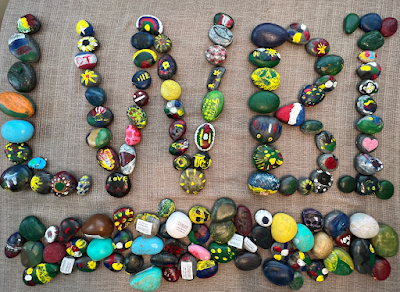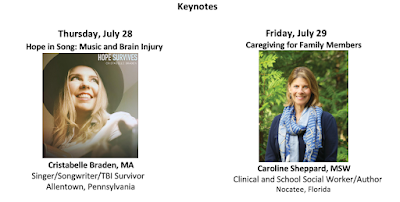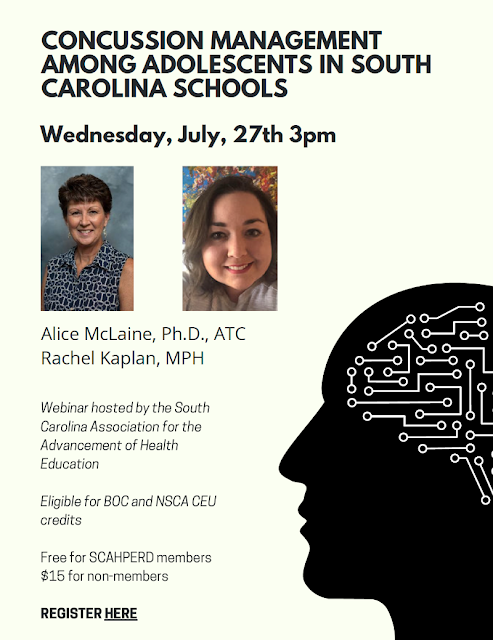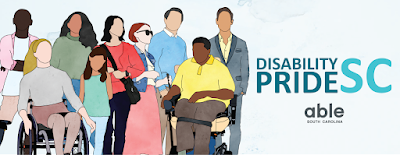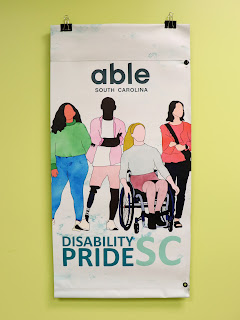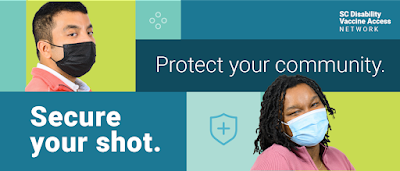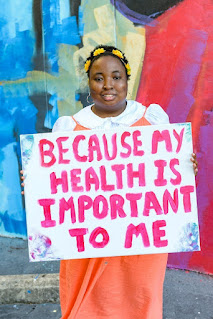para español haga clic aquí
BACK TO BASICS:
Staying Safe from COVID-19
With COVID-19 cases on the rise in South Carolina, Able SC and the South Carolina Department of Health and Environmental Control (SC DHEC), would like to remind you of basic steps you can take to stay safe and prevent the spread of COVID-19. (Source 1).
Even with many people being vaccinated against COVID-19, it is still important to practice these simple steps to keep from getting sick from COVID-19.
Here are eight ways to protect yourself from:
- Getting COVID-19
- Becoming very sick
- Having to go to the hospital
- Death from COVID-19
1. Get vaccinated and stay up to date on your COVID-19 boosters.
The Centers for Disease Control and Prevention (CDC) and SC DHEC recommend getting the COVID-19 vaccine as the best way to prevent getting sick or dying from COVID-19. (Sources 1, 4). Right now, people ages six months and older should get the COVID-19 vaccine. People ages 5 and older should get at least one booster shot. If you are 50 years or older, or are immunocompromised, you should get a second booster shot.
There are several different types of COVID-19 vaccines available here in South Carolina:
- Pfizer BioNTech’s and Moderna COVID-19 vaccination are authorized for ages 6 months and up (Source 5).
- Johnson & Johnson COVID-19 vaccination is authorized for individuals 18 and older (Source 10).
If you would like to learn about the different types of vaccines and who can take them, you can go to www.scdisabilityvaccine.org, or call the SC Vaccine Access Hotline at 1-800-787-6046 to get help accessing information about the vaccines.
2. Wear a mask.
Wearing a mask is another way to protect yourself & others from COVID-19. Although most mask requirements have ended, the CDC recommends that everyone over the age of two should wear a mask when COVID-19 cases are high in the community. Wearing a mask is very important when you are indoors. This is also recommended for people who are already vaccinated.
If you have a disability that puts you at high risk of getting very sick from COVID-19, you should wear a mask when the COVID-19 case levels in your community are medium. You can check your community’s COVID-19 case levels by going to SC DHEC’s community dashboards at https://scdhec.gov/covid19/covid-19-data.
You might also wear a mask if you live with or are a caregiver to someone who is at high risk of getting very sick from COVID-19.
If you are sick and still must be around others, you should wear a mask. This helps keep you from spreading germs like COVID-19 to the people around you. Even when people are vaccinated, some people may have disabilities or take medications that make it harder for their bodies and the vaccine to fight against COVID-19.
The type of mask you wear is important too! Experts specifically recommend respirator masks such as N95, KN95, and KF94. Learn more about masking here.
3. Practice social distancing.
To practice social distancing, it is recommended that you stay six feet away from others. When you stay six feet away from others you are less likely to get COVID-19 from someone who may or may not know they are sick. The germs that cause COVID-19 are less likely to travel from a sick person to infect other people standing distances of 6 feet or more apart.
If you are at home and someone is sick with COVID-19, it is also recommended to keep others in the home six feet or more away from the sick person. When caring for a sick person, remember to wear a mask.
4. Avoid crowds and places that might not have good ventilation.
If you are at high risk of getting sick from COVID-19, you should avoid large crowds of people standing close together, especially indoors. If you do choose to go indoors, go to places that have good ventilation. Good ventilation is when outdoor air is able to move indoors. If you do have to go inside a crowded place, you should wear a mask. It may be possible to call ahead to public places, such as restaurants, to ask if they have updated their ventilation to protect visitors during the pandemic.
5. Wash your hands often.
The CDC recommends that you should wash your hands with soap and water for 20 seconds. Science shows that 20 seconds of thorough hand washing removes germs from your hands (Source 6).
Hand washing should follow these steps each time:
- Wet your hands with clean water and apply soap.
- Lather your hands with the soap.
- Scrub your hands for a minimum of 20 seconds.
- Using clean water, rinse your hands well.
- Allow your hands to air dry or dry them using a clean dry towel (Source 7).
If you do not have access to soap and water, you should use hand sanitizer. The CDC recommends pouring some into your hands and rubbing them together to get the sanitizer all over your hands. Rub the sanitizer into your hands until your hands feel dry (Source 4).
You should wash your hands when you return home from being out in public. You should also wash your hands after you cough or sneeze. Other reasons you would want to wash your hands are:
- You took care of someone who is sick
- You were petting an animal
- You used the restroom
You should wash your hands before touching or removing your mask, and after you touch or remove your mask.
Always wash your hands before touching your face or eating or preparing food.
6. Cover your coughs and sneezes.
You should always cover your mouth and nose when you sneeze. The CDC recommends using a tissue in your hand to cover your mouth and nose or putting your face into the crook of your elbow. After you cover your cough or sneeze, wash your hands. If you used a tissue to cover your face, throw it away—do not reuse it. Remember to wash your hands afterward.
If you are wearing a mask, you can cough or sneeze into it. If you can, change into a clean mask as soon as possible afterward. Wash your hands after handling the mask you sneezed into. If you need to wash your hands after sneezing or coughing but do not have access to soap and water, you can use hand sanitizer.
7. Clean and disinfect.
You can help reduce the spread of COVID-19 and other germs at home and at work by cleaning and disinfecting frequently touched surfaces. Some examples are doorknobs, desks, light switches, and countertops. If many people touch these surfaces a lot, it is a good idea to clean and disinfect these places daily.
If someone is sick or has tested positive for COVID-19, the surfaces they touch should be cleaned immediately after use. You can use a regular household disinfectant to clean these surfaces. If the surface is dirty, you should wash it with soap or detergent and water before using the disinfectant.
8. Monitor your health daily.
Pay attention to how you are feeling. If you are not feeling well, you should not go out in public. If you have symptoms of COVID-19, such as fever, cough, shortness of breath, headache, muscle or body aches, or other symptoms (Source 8) you should get tested for COVID-19. You should also contact your healthcare provider (Source 4).
If you have or think you have COVID-19, contact your healthcare provider and develop a plan to self-quarantine (stay home and away from other people for at least 5 days) or isolate:
How to isolate:
- If possible, stay in a separate room from other members of your household
- If available, use a separate bathroom from other household members
- Stay away from pets and other household members
- Do not use the same household items as others - such as towels, utensils, plates and cups.
- Always wear a mask if you need to be around others, such as caregivers (Source 9)
To get home COVID-19 tests mailed to your home for free. Go to https://www.covid.gov/tests or call 1-800-232-0233 (Voice) or 1-888-720-7489 (TTY).
*****
Receiving the COVID-19 vaccine is the safest way to avoid contracting serious illness. You can go to www.scdisabilityvaccine.org, or call the SC Vaccine Access Hotline at 1-800-787-6046 to get help accessing your vaccine or to learn more about vaccines.
*****
SOURCES:
1.South Carolina Department of Health and Environmental Control (June 2022), “DHEC Urges Vaccination and Masking Amid COVID-19 Community Levels Spike.” https://scdhec.gov/news-releases/dhec-urges-vaccinations-masking-amid-covid-19-community-levels-spike
2.South Carolina Department of Health and Environmental Control (2022). “COVID-19 Community Levels.” (Data dashboard). https://scdhec.gov/covid19/covid-19-data
3.Centers for Disease Control and Prevention (2022), “COVID Data tracker Weekly Review.” https://www.cdc.gov/coronavirus/2019-ncov/covid-data/covidview/index.html
4.Centers for Disease Control and Prevention (2022), “How to Protect Yourself and Others.” https://www.cdc.gov/coronavirus/2019-ncov/prevent-getting-sick/prevention.html
5.South Carolina Department of Health and Environmental Control (2022), “DHEC Encourages COVID-19 Vaccinations for Ages 6 Months and Up Following CDC Approval.” https://scdhec.gov/news-releases/dhec-encourages-covid-19-vaccinations-ages-6-months-following-cdc-approval
6.U.S. News and World Report (2021) “Physics Shows Why 20 Seconds Is Right for Hand-Washing” https://www.cdc.gov/handwashing/when-how-handwashing.html
7.Centers for Disease Control & Prevention (2022), “When and How to Wash Your Hands” https://www.cdc.gov/handwashing/when-how-handwashing.html
8.Centers for Disease Control (2022) “Symptom of COVID 19” https://www.cdc.gov/coronavirus/2019-ncov/symptoms-testing/symptoms.html
9.Centers for Disease Control (2022) “Quarantine and Isolation” https://www.cdc.gov/coronavirus/2019-ncov/your-health/quarantine-isolation.html#quarantine
10.Centers for Disease Control (2022)
“COVID-19 Vaccine Recommendations for Children and Teens” https://www.cdc.gov/coronavirus/2019-ncov/vaccines/vaccines-children-teens.html

